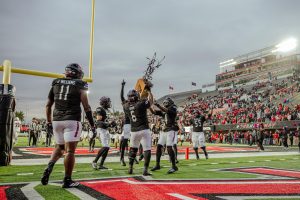Nurse discusses overseas experiences
November 5, 1987
Realizing how little they know about other cultures is a rude awakening many nurses face overseas, said Nancy Savage at NIU’s annual Roseanne Krcek-Frank lecture
Savage has worked as a staff nurse, instructor and consultant for Project Hope in countries such as Indonesia, Peru, West Africa, Nicaragua and Tunisia.
Savage said many of her overseas experiences were difficult to accept at first. She said extensive cocaine use in Peru, common parasitic problems in West Africa and weak roles of women in Tunisia were like nothing she had ever encountered in the United States.
Each culture had its own ideas and traditions for health care, Savage siad. She said nurses must understand this and work with this fact so other cultures will comply with western health practices.
In addition to her overseas experiences, Savage spoke of her work with the Navajo Indians on the Arizona reservation, which was the topic of her doctoral thesis.
Savage said she thought other students would enjoy studying on a reservation as well because the Navajos were of such a diverse culture than most Americans. Savage returned to the reservation with a group of students to do further work.
On the reservations, students worked in either modern hospitals or small clinics, but all had the chance to visit families in their private camps, Savage said.
She said less than 50 percent of the homes had running water. Most sicknesses in the summer months occured from bacteria found in well water. Savage added that lack of heat caused most sicknesses in cold weather.
The life expectancy of the Navajo is about seven years less than white Americans, and the infant mortality rate is high due to infectious diseases, Savage said.
Alcohol-related accidents are the highest cause of adult death, Savage said.
Although the Navajos stick to most traditional beliefs, they use western health care as often as they use their traditional medicine man, Savage said.
The medicine man uses an elaborate sustem of nine nights of chanting and praying to rid the patient of sickness which is believed to be caused by breaking some Navajo law or tradition, Savage said.






